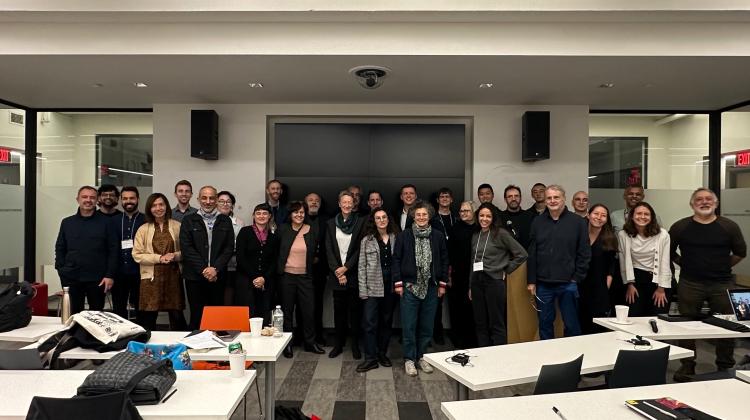Rez de Ville

On September 22-23, 2023, the MIT City Form Lab at the School of Architecture and Planning hosted an international seminar on the topic of urban ground floors—Rez de Villes. As an arena for public interaction, the ground floor of the city is the most immediate interface between city dwellers and the built environment, shaping perceptions about cities, society, economy and environment. The urban ground floor is also highly contested and continuously reshaped by forces of change. In the U.S. context, shifting national demographics and location preferences of whites and high-income groups away from sprawling 20th century suburbs back to inner city neighborhoods. Resulting gentrification and displacement pressures often play out on streets and ground-floor spaces, where exchange and use values come into conflict. Escalating climate risks push city governments to regulate development based on topographical and flooding conditions, storm surges and rising sea levels. Local efforts to de-carbonize cities by shifting transportation mode-share away from 20th century automobility towards greener alternatives—public transport, walking and cycling—impacts mobility dynamics on urban ground floors. As cities incorporate new mobility technologies and services— delivery trucks, e-scooters, shared bikes, ride-hailing services, and potentially automated vehicles— they compete with other activities for scarce space in the public right of way. E-commerce is also restructuring shopfronts and commercial spaces along city streets and public spaces.
At the 2023 Rez de Ville seminar at MIT, we examined how urban ground floors are changing as a result contemporary social, economic, environmental and technological forces, and how such changes are likely to impact different stakeholder groups in cities. What current societal forces are bound to transform urban ground floors and how? What implications are such changes going to have on how cities are experienced? Who do these changes affect the most and how do they differ by place and geography? The presentations delivered at the seminar by scholars and practitioners of city design are available to the public below.
Previous iterations of the seminar were convened in Paris (2019, at École d’architecture de la ville & des territoires Paris-Est) and Barcelona (2022, at the Universitat Politècnica de Catalunya UPC). See more at: https://www.rezdeville.com/


